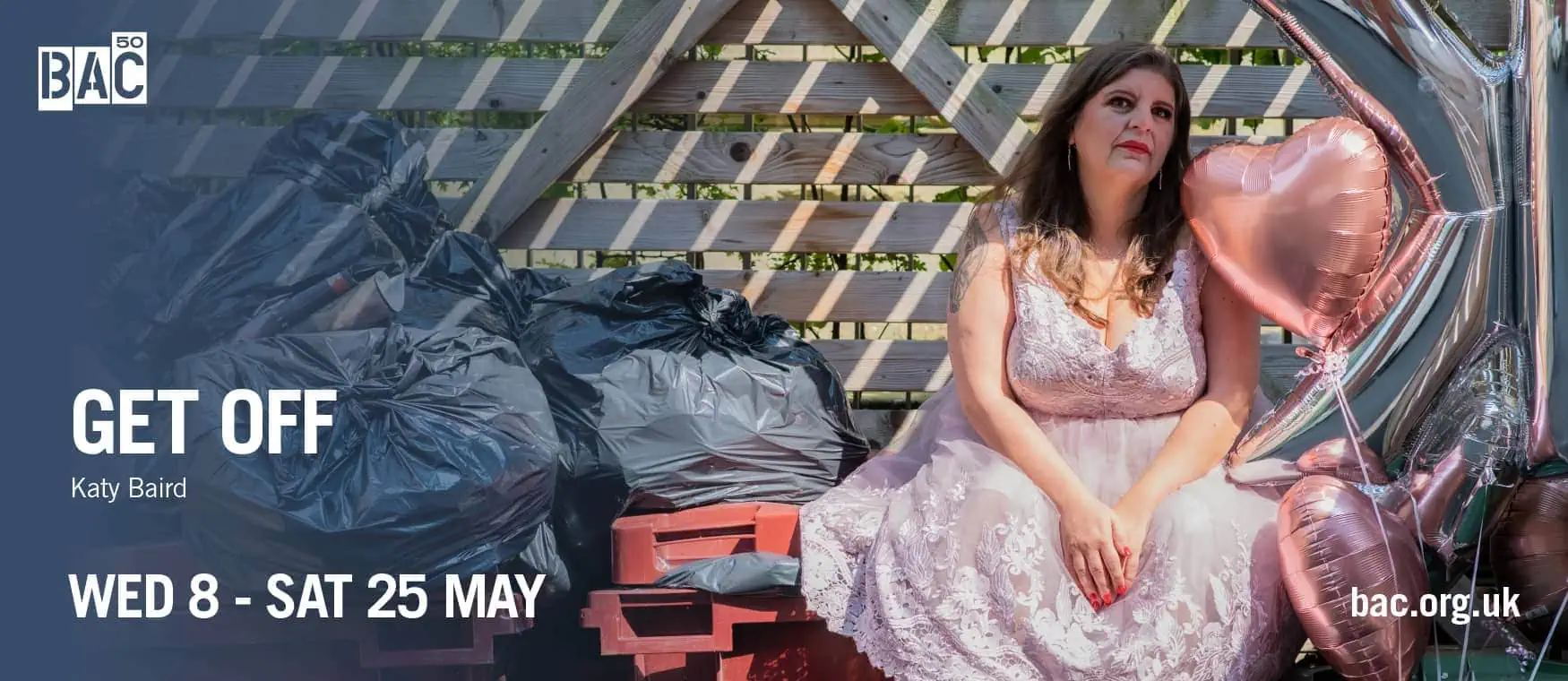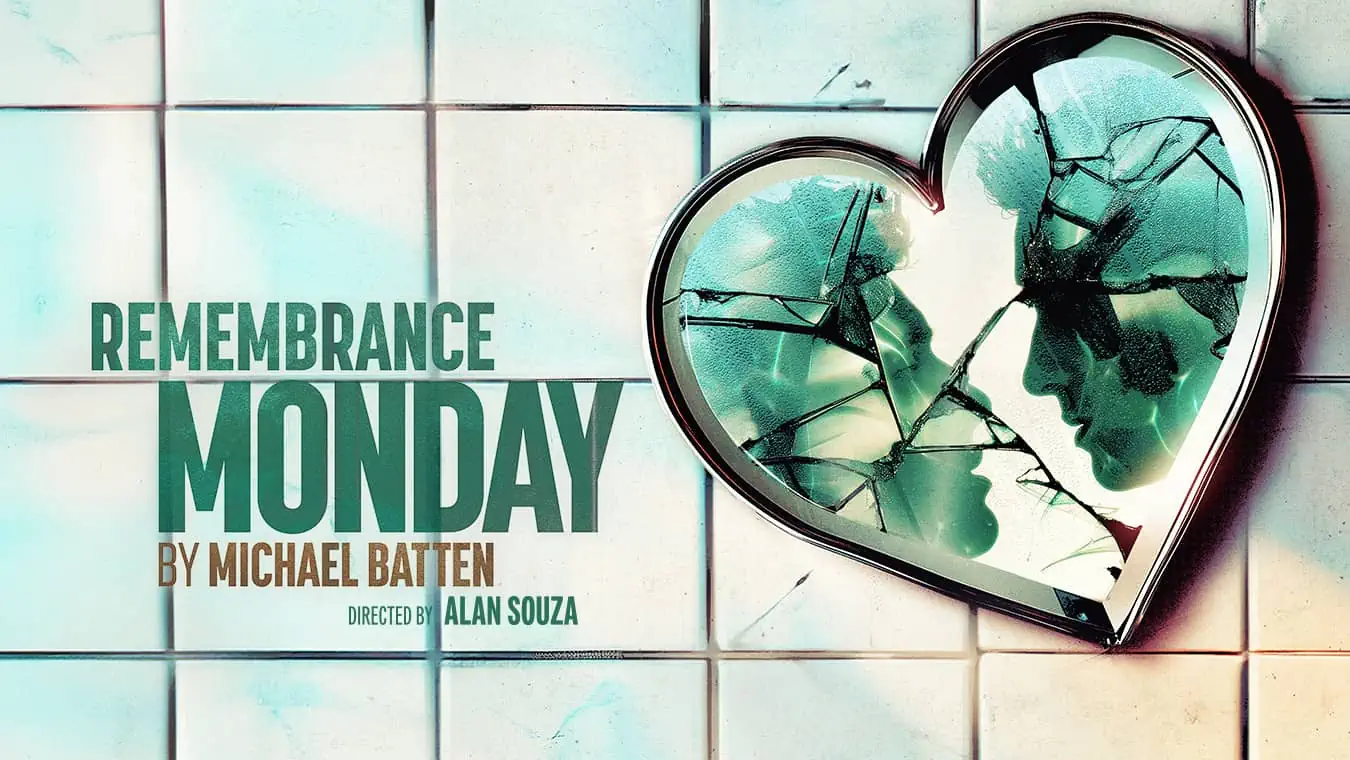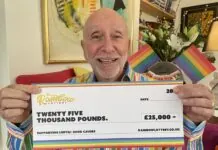Words by Dylan B Jones
It’s a breezy midsummer afternoon, and we’re sitting in the Soho Theatre’s unapologetically bougie bar with author Patrick Gale.
Gale is perhaps one of the UK’s best-known novelists. His work graces bookshelves from Stoke-On-Trent to Stoke Newington, and he’s got a kaleidoscopic spectrum of adoring fans, from ladies of leisure who pore attentively over his books with a gin and tonic and freshly painted nails, to trendy urban gay youths, who also pore attentively over his books, also with a gin and tonic and freshly painted nails.
It sums up Patrick’s core appeal – his ability to resonate with pretty much anyone, regardless of background or generation. His characters are instantly likeable and eminently human. And his books, while effervescent and at times idyllic, are far from fluffy; they can be harrowing, dark and uncomfortably real.
His new novel, Take Nothing With You, is about loss, love, growing up and, most of all, the joys of music. While he often includes wonderful LGBT characters in his books, he mostly chooses not to make them the prime focus of the story. In this case, he says, things are different.
“It’s very gay,” he says, sipping his smoothie with a twinkle in his eye. “It’s about a gay man in his 50s, who is very settled and happy when we first meet him. But then he falls madly in love with a soldier on an app, who he’s never met. And then discovers he has cancer. And that’s just the first ten pages.”
“Then we see him growing up. It’s set in the 70s, but it’s about a lot of stuff that’s still a concern now – like gay bullying and parents trying to cure their children.”
This leads us to discussing how homophobia affects us in 2018. A lot of dialogue in the media – and on social media – implies that, for cis gay men at least, the battle is won. Patrick is thoughtful on the subject.
“A lot of us are socially functioning, pretending everything’s fine, when it’s not,” he sighs. ”There’s a lot of self-censorship in gay life, and many of us are so thrilled that we’ve got a measure of equality, that the last thing we want to do is to appear to be moaning, and asking for yet more rights. But you don’t have to scratch the surface very hard to realize that there’s a great groundswell not only of fear, but also of resentment.”
As we talk, on the streets outside, preparations are being made for the Pride in London celebrations. Rainbow bunting is being strung across Old Compton Street and a few hundred metres away, Marks & Spencer is offering customers a limited edition “Pride Rainbow Veg Sandwich” for £2.50. I ask Patrick what he makes of how people see Pride these days, and the heated debates surrounding it.
“You live in London and Manchester – you’re in a gay bubble!” he says, smiling wryly. “You have a pride event. If you live on a farm in Cornwall, you become very aware that actually…well, put it this way, Cornwall Pride is a tea party with about ten people.”
Patrick has lived in the narrow-laned depths of Cornwall with his husband for twenty years (“before that, I kept having disastrous affairs with guys in town”). He says that for many, especially LGBTQ teenagers, it’s still startlingly isolated. Patrick believes the internet and apps have been a huge help to rural queer teenagers with no other outlet.
“The internet is the single most beneficial thing that’s happened to us, aside from legislation,” he says intently. “You know you’re not alone.”
I ask what things were like for him, growing up as a young gay man in a pre-internet age.
“My earliest clubbing experience as a gay teenager was catching a late night bus to Southampton,” he laughs. “I went to the Magnum Club, because it was the only gay club.”
“But it was actually wonderfully mixed – there were lesbians there, there were drag queens there, even the occasional person of colour. And that was in the late 70s. I remember being shocked in my early 20s when I first moved to London. I would go clubbing with gay women friends, and we’d get turned away at the door of Heaven. And that divisiveness really made me feel bad.”
Patrick often addresses political and social subjects in his books, with seemingly effortless assuredness. The issues he covers, particularly LGBT issues, are dealt with sensitively, without a hint of preachiness. I ask how he navigates this, particularly in today’s volatile milieu of heated conversation.
“When I was starting out, a lot of LGBT fiction was almost unreadable, because it was trying so hard to make a political point, that it had lost its direction,” he says carefully. “First and foremost, you’re telling a story. If your points are going to be put across, they need to be embedded in human stories. That’s always been the key to Armistead [Maupin]’s success. His work is hugely entertaining. And he makes this beloved character, Mary-Ann, become an absolute monster, then cease to be a monster in the later books. And that’s far more powerful than just banging a drum and saying ‘YOU NEED TO CHANGE.’”
“There was a long period, from the early 80s through to the mid 90s, when every gay writer seemed to feel that whenever they wrote a gay character, they had to be perfect. And the gay relationships had to be perfect. My version of that is that I always give my gay characters a happy ending. As it were.”
I ask what he thinks resonates most with the mainstream public these days, and the best way to get across messages to people in the age of Instagram perfection and reality television superficiality.
“We need a trans character on Love Island or something,” he says, shrugging. “That’s how you REALLY reach the nation. Not by writing sweet novels that not everybody reads.”
Patrick is refreshingly, almost cuttingly realistic about the world he occupies. Which is perhaps the key to his assured writing style. We discuss the major stumbling block of most modern gay literature – the sex scene. Far from cringily cloying descriptions of throbbing members, Patrick paints his erotic scenes with aplomb, achieving the holy grail of sex scenes in literature – avoiding clichés while still managing to be sexy. Really sexy. Not-being-able-to-stand-on-the-tube-after-reading-them sexy.
“You need to write a seduction scene, not a sex scene. You’re seducing the reader. You want the reader to feel horny, and feel anticipation.”
“Sex scenes go wrong when you give too much detail. Because the detail you want, may not be the detail your reader wants.”
Talk of sex naturally leads to talk of how modern gay men have sex, and how dating apps have changed the game. They play a role in Take Nothing With You, and Patrick has mixed feelings about them.
“They’re a fascinating phenomenon…” he says, slowly. “And I think as writers, we have a duty to investigate them and write about them. Because they’re changing gay society at such a rate. But the sad side of them, is that they can encourage people to stay in the closet. It’s market forces. Clearly there are still a lot of people out there, who are prepared to pay to stay in the closet. And I think that’s terribly sad.”
“I’d like to see companies like Grindr and Scruff putting their profits into investigating why that’s still the case, and maybe doing something to change it.”
“Of course, they’ve also taken away a lot of the energy from the gay pub and club scene. Which kind of means that even as we’re getting more and more legal equality, we’re sort of losing visibility.”
We discuss the idea of assimilation, and how important it is to preserve gay culture and LGBT spaces, in an increasingly accepting world.
“In the 80s and 90s, a lot of bookstores were fantastically supportive, and started creating a ‘gay shelf’ or ‘gay area’ with LGBT titles in it.” He polishes off the last of his smoothie. “Some politicized gay people believed that was wrong, that we should be everywhere. My counter argument would be, when you’re an emerging gay 12-year-old, walking into Waterstones with your mum, it must be so exciting to see a bit that’s just for you.”
“I think it’s probably the same with broader gay culture. When you’re emerging, you’re shaping your identity. And you can do that by going to a café that’s just for you. Reading a magazine that’s just for you. Or reading a book that’s just for you! It can be incredibly affirming.”
Take Nothing With You is out on 20th August. For more info on the book and Patrick’s upcoming book tour, head to galewarning.org












